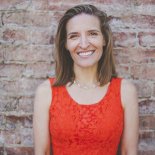
There are stereotypes about women. “It’s a woman’s prerogative to change her mind” is one example. It suggests that women aren’t as decisive as men. This is untrue.
Women tend to be more analytical than men. There’s a saying about women being more intuitive. Research shows that women collect more information and analyze everything before making a decision.
Men and women make decisions differently under stress. Men tend to take more risks than they would ordinarily when huge gains or losses are on the line. Stressed women are more likely to make the safe bet and go with the sure thing. Different areas of the brain are impacted when men and women face stress.
Tips for Making Decisions in Business
- Make sure both men and women are in the room when important decisions are being made. The environment needs to be conducive to women’s voices being heard regarding those decisions.
- Encourage risk-taking in the workplace so women feel comfortable taking risks. Make it easier for women to step up.
- Mentor women to speak up on their ideas when they’re not absolutely certain they will work. It’s better to speak up and be 60% certain than to stay quiet until 80% certain.
